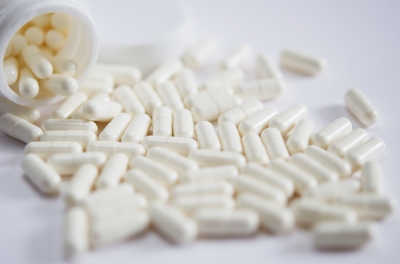Glutathione: Not Just a Skin Whitener
Glutathione has become increasingly popular these days especially among individuals who want to lighten their skin color. Though it is widely known for its cosmetic benefits, there is more to glutathione than meets the eye. More than just its whitening properties, glutathione (GSH) plays an important role in antioxidant defense, nutrient metabolism and regulation of cellular events. This small protein, produced naturally in the body, supports these crucial functions.
As an antioxidant, immune booster, detoxifier and energy enhancer, glutathione is also known to be the “mother of all antioxidants” because it recycles and recharges the antioxidants in our body, except when the toxic load becomes too great and glutathione levels become depleted.
The body depends largely upon glutathione. Without it, your cells would disintegrate from unrestrained oxidation, your body would have little resistance to bacteria, viruses and cancer, and your liver would cease functioning from the accumulation of toxins. Glutathione is one of the antioxidants that help the body detoxify, protecting cells from damage caused by oxidation and inflammation. A deficiency in glutathione can contribute to oxidative stress, which may lead to aging and disease such as:
• Alzheimer’s disease
• Parkinson’s disease
• Liver disease
• Sickle cell anemia
• Cancer
• Heart attack
• Stroke
• Diabetes
What are antioxidants?
When our body turns food into energy, one of the byproducts of that process is the free radicals. Antioxidants counter these free radicals, which assault healthy cells by stealing an electron from any cell they encounter, damaging it and thereby interrupting normal cell function. Derived from the Greek word ‘anti,’ antioxidant refers to the prevention of the oxidation process by donating an electron to the cell without turning into damaging cells themselves. Oxidation is the loss of electrons. If you’ve ever sliced an apple and wondered why it turned brown, then you have seen oxidation in action.
Free radical damage happens fast, immediately setting off a chain reaction that can lead to a weakened immune system prone to disease. Antioxidants work to detoxify the body by stopping the reaction from continuing or starting. Vulnerability to autoimmune diseases and inflammatory disorders increases with low levels of glutathione in the body. Stress, smoking, lack of sleep and inadequate nutrition can decrease the body’s natural glutathione production.
How it works
Glutathione is a very simple molecule that is produced naturally in the body all the time. It is a combination of three building blocks of protein or amino acids — cysteine, glycine and glutamine. Glutathione is a substance produced naturally by the liver. It is also found in fruits, vegetables and meat.
The secret behind glutathione’s power is the sulfur (SH) chemical groups it contains. Sulfur is a sticky, smelly molecule that acts like a sticky fly paper which captures and attracts all the bad things in the body, including free radicals and toxins like mercury, as well as other heavy metals. Glutathione is normally recycled in the body except when the toxic load in the body becomes too great. That is when disease and disorders set in.
How to get more of it
There are different ways you can take in glutathione:
• Glutathione capsules can be taken orally to treat cataracts and glaucoma, asthma, cancer, memory loss and osteoarthritis, among others.
• Glutathione injections administered intramuscularly (into the muscle) can help prevent the hazardous side effects of chemotherapy. It can also help alleviate male infertility.
• Glutathione intravenous (IV) transfusion is administered to prevent anemia in kidney patients undergoing hemodialysis, to improve blood flow and decrease clotting for patients with atherosclerosis (hardening of arteries) and to treat diabetes.
The role of glutathione in antioxidant defense and nutrient metabolism is critical in developing an effective health management strategy and in fighting disease.
How to optimize your Glutathione levels
1. Eat food that supports Glutathione production, such as:
• Sulfur-rich foods like garlic, onions and the cruciferous vegetables (broccoli, kale, collards, cabbage, cauliflower, watercress, etc.)
• Bioactive whey protein is a great source of cysteine and the amino acid building blocks for glutathione synthesis.
2. Exercise to boost your glutathione levels.
This will help boost your immune system, improve detoxification and enhance your body’s own antioxidant defenses.
3. Take supplements that include:
• N-acetyl-cysteine, which comes from the amino acid L-cysteine. This is also effective in helping to prevent crusting in people with tracheostomy; acetaminophen poisoning; reducing mucus and helping with breathing in various lung conditions; and cystic fibrosis.
• Alpha lipoic acid. This is a nearly important as glutathione and is involved in energy production, blood sugar control, brain health and detoxification. Usually produced in the body but becomes depleted when under stress.
• Methylation nutrients, such as folate and vitamins B6 and B12. Methylation and the production and recycling of glutathione are the two most important biochemical functions in your body. Take folate (active form of 5 methyltetrahydrofolate), B6 (P5P) and B12 (active form of methylcobalamin).
• Selenium. This mineral helps the body recycle and produce more glutathione.
• Antioxidants like vitamins C and E (in the form of mixed tocopherols), work together to recycle glutathione.
• Milk thistle (silymarin) has long been used in liver disease and helps boost glutathione levels.
_____________
References:
“Glutathione Metabolism and Its Implications for Health.” The Journal of Nutrition 134, no. 3 (2004): 489-492. http://jn.nutrition.org/content/134/3/489.full.
“Glutathione, Immune Tolerance, and Autoimmune Thyroid Disorders.” National Academy of Hypothyroidism. http://nahypothyroidism.org/glutathione-immune-tolerance-and-autoimmune-thyroid-disorders/
http://www.webmd.com “Uses, Side Effects, Interactions and Warnings”
http://www.huffingtonpost.com/dr-mark-hyman/glutathione-the-mother-of
http://www.webmd.com/vitamins-supplements/ingredientmono-717-GLUTATHIONE.aspx
“Image courtesy of rakratchada torsap/FreeDigitalPhotos.net”
Disclaimer. This website is intended for informational purposes only and is not intended to render medical advice. Any information provided on HealthyLife Online should not be used for diagnosing or treating a health problem or disease. It is not a substitute for professional care. If you suspect a health problem, you should consult a medical professional or your health care provider. Do not disregard professional medical advice or delay seeking professional medical advice because of something you may have read on this website. The website does not recommend nor endorse any specific tests, products, procedures, opinions, or other information that may be referenced in the Website.

